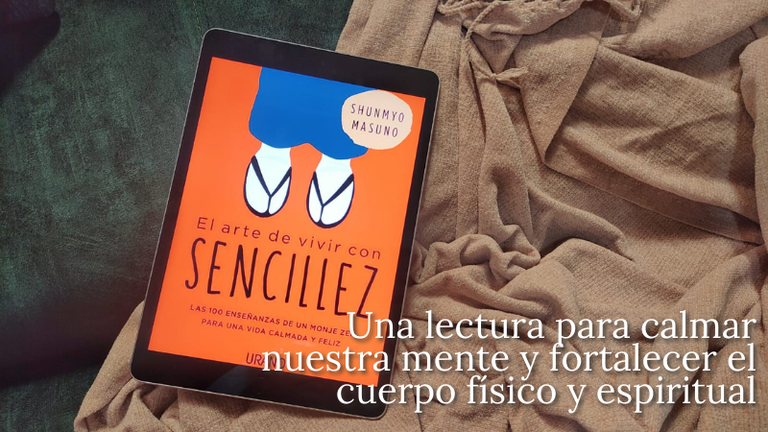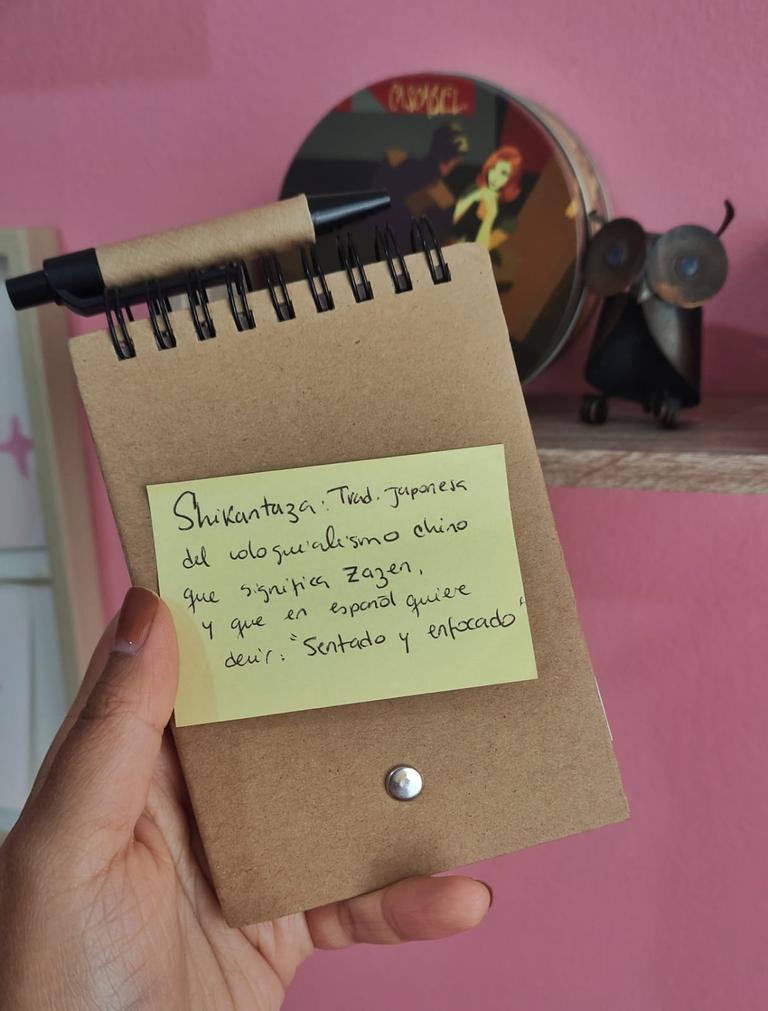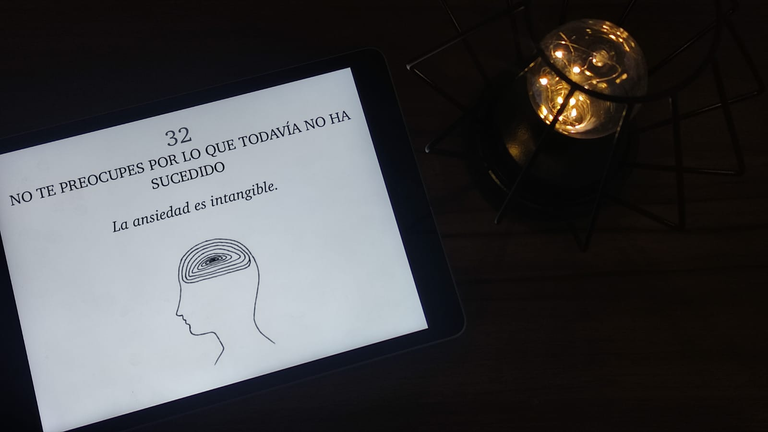Book review: The Art of Simple Living [ESP-ENG]

Continúo ampliando mi repertorio de libros de Crecimiento Personal pues es uno de los recursos que usamos en psicoterapia para ofrecerle al paciente herramientas que le ayuden a continuar y profundizar en sus procesos fuera de la sesión.
I continue to expand my repertoire of Personal Growth books as it is one of the resources we use in psychotherapy to offer the patient tools to help them continue and deepen their processes outside the session.
Este mes llegó a mis manos "El arte de vivir con sencillez", del maestro Zen Shunmyo Masuno y aunque me leí más de la mitad del libro en una sola sentada, el resto de páginas las dosifiqué pues rápidamente se convirtió en mi "lectura cómoda". ¿Por qué? Básicamente es un libro que condensa filosofía Zen, budismo y otras prácticas presentandas en 100 lecciones concisas, que sentí como pequeñas cápsulas de sabiduría para el día a día. Otros libros de crecimiento personal que he leído anteriormente utilizan un modo de expresión exhortativo y estremecedor. Este, por el contrario, logra ser suave y firme al mismo tiempo. Como una pomada que alivia y cicatriza sin llegar a perturbar.
This month I got my hands on "The Art of Simple Living", by Zen master Shunmyo Masuno and although I read more than half of the book in one sitting, I dosed the rest of the pages as it quickly became my "comfortable reading". Why? Basically it's a book that condenses Zen philosophy, Buddhism and other practices presented in 100 concise lessons, which felt like little capsules of wisdom for everyday life. Other personal growth books I've read before use an exhortative and harrowing mode of expression. This one, by contrast, manages to be gentle and firm at the same time. Like an ointment that soothes and heals without disturbing.
En estos 100 aprendizajes se recoge la cosmovisión y estética japonesa, budismo zen, proverbios chinos y enseñanzas de sabios monjes en diferentes aspectos que llegan a ser muy útiles para la cultura occidental en la actualidad: los apegos, la envidia, la ansiedad, la disposición de nuestro hogar (interno y externo), el minimalismo, la meditación, el fortalecimiento de nuestro espíritu... "El arte de vivir con sencillez" nos deja tareas para aplicar en nuestra vida diaria en relación a nuestro ser físico, mental y espiritual.
In these 100 lessons, the Japanese worldview and aesthetics, Zen Buddhism, Chinese proverbs and teachings of wise monks are collected in different aspects that become very useful for Western culture today: attachments, envy, anxiety, the arrangement of our home (internal and external), minimalism, meditation, the strengthening of our spirit... "The art of simple living" leaves us with tasks to apply in our daily life in relation to our physical, mental and spiritual being.

La promesa del libro "100 enseñanzas de un monje zen para una vida calmada y feliz" es completamente honesta. A fin de cuentas, uno llega a sentirse envuelto en estas páginas por un aura de serenidad y tranquilidad. Lo superficial, lo material, los problemas de nuestra mente y los problemas que vemos afuera dejan de tener tanta importancia. Este libro nos acompaña a dirigir nuestra atención hacia lo verdaderamente importante, la conexión con uno mismo y con los demás, la consciencia del presente, nuestro tránsito pasajero por esta vida, el perdón, la hospitalidad, la gratitud, la contemplación y la belleza en lo simple, lo natural.
The promise of the book "100 Daily Practices from a Zen Buddhist Monk for a Lifetime of Calm and Joy" is completely honest. After all, one comes to feel enveloped in these pages by an aura of serenity and tranquility. The superficial, the material, the problems of our mind and the problems we see outside cease to be so important. This book accompanies us to direct our attention towards what is truly important, the connection with oneself and with others, the awareness of the present, our passing transit through this life, forgiveness, hospitality, gratitude, contemplation and beauty in the simple, the natural.
Me gustó encontrar en este texto significados anteriormente desconocidos para mi, como que en Japón la palabra "ocupado" se escribe con los símbolos "perder" y "corazón", una referencia muy interesante a no tener espacio interno para nada más o el dicho "munen muso" que hace referencia a dejar la mente en blanco y liberarse de todo aquello que nos distrae o perturba mentalmente. Otro aspecto agradable de esta lectura fue encontrar, previo a cada lección, una pequeña frase acompañada de una imagen alusiva. Algunas de estas frases quedaron fuertemente grabadas en mi, por ejemplo "En lugar de preocuparte, sigue adelante. Es la manera más sencilla de enfrentarte a un desafío", acompañada de la imagen de una mano y una planta que se recoge de raiz para ser sembrada en otro espacio o "Querer siempre más nos lleva al sufrimiento", con una imagen de un par de monedas apiladas y otras sueltas.
I liked to find in this text meanings previously unknown to me, such as that in Japan the word "busy" is written with the symbols "lose" and "heart", a very interesting reference to not having internal space for anything else or the saying "munen muso" which refers to leaving the mind blank and freeing ourselves from everything that distracts or disturbs us mentally. Another pleasant aspect of this reading was to find, prior to each lesson, a small phrase accompanied by an allusive image. Some of these phrases remained strongly engraved in me, for example "Instead of worrying, go ahead. It is the easiest way to face a challenge ", accompanied by the image of a hand and a plant that is picked up by the root to be planted in another space or "wanting things always lead to suffering ", with an image of a couple of coins piled up and others loose.

Recomiendo particularmente esta lectura a aquellos que han tenido un bloqueo lector y, aunque quisieran retomar la lectura, están pasando por un estado mental que les impide avanzar cualquier texto. Personalmente sé que este es un libro al que regresaré, pues varias de estas 100 enseñanzas calaron en mí a niveles extraordinarios y otras seguramente pasaron por alto, porque no las pude ver o valorar lo suficiente en este momento de mi vida.
I particularly recommend this reading to those who have had a reading block and, although they would like to resume reading, are going through a state of mind that prevents them from advancing any text. Personally, I know this is a book I will return to, as several of these 100 teachings resonated with me at extraordinary levels and others surely went overlooked, because I could not see or appreciate them enough at this point in my life.
Cuéntame en los comentarios, ¿has leído este libro? ¿te gustaría leerlo?
Tell me in the comments, have you read this book? would you like to read it?
Todas las imágenes de esta publicación son de mi autoría, editadas en snapseed y canva. El contenido también es original y propio, a excepción de las citas, las cuales pertenecen al texto reseñado.
All images in this post are my own, edited in snapseed & canva. The content is also original and mine, except for quotations, which belong to the text under review.

Qué bien, me encantan ese tipo de libros. Cuando son tan ligeros, por lo general, los leemos corriendo pero debería ser todo lo contrario, tomarse el tiempo para reflexionar cada enseñanza. Gracias por compartirlo!
Es cierto! y es curioso cómo un libro tan sencillo pueda dejarnos grandes enseñanzas, al menos así fue mi experiencia con este :)
Muchas gracias por tomarte el tiempo de leer y comentar. Saludos!